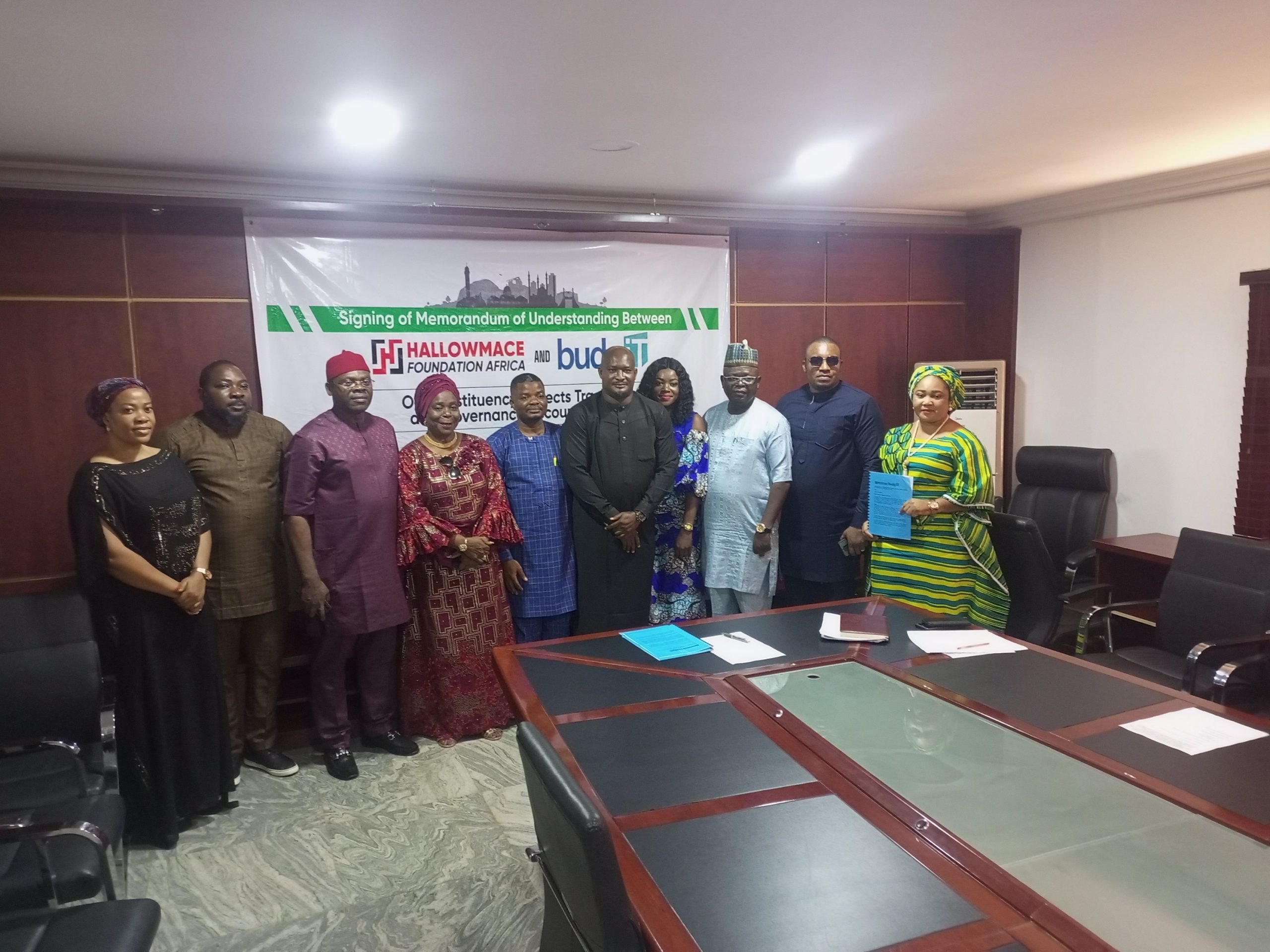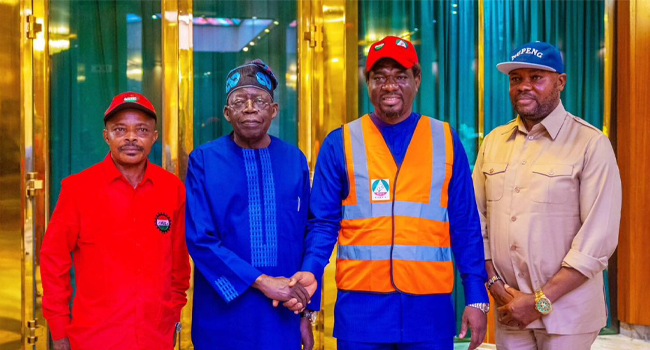The Nigerian legislature and its activities are most misunderstood among the three arms of government, the Director General of the National Orientation Agency (NOA) Dr Garba Abari has indicated.
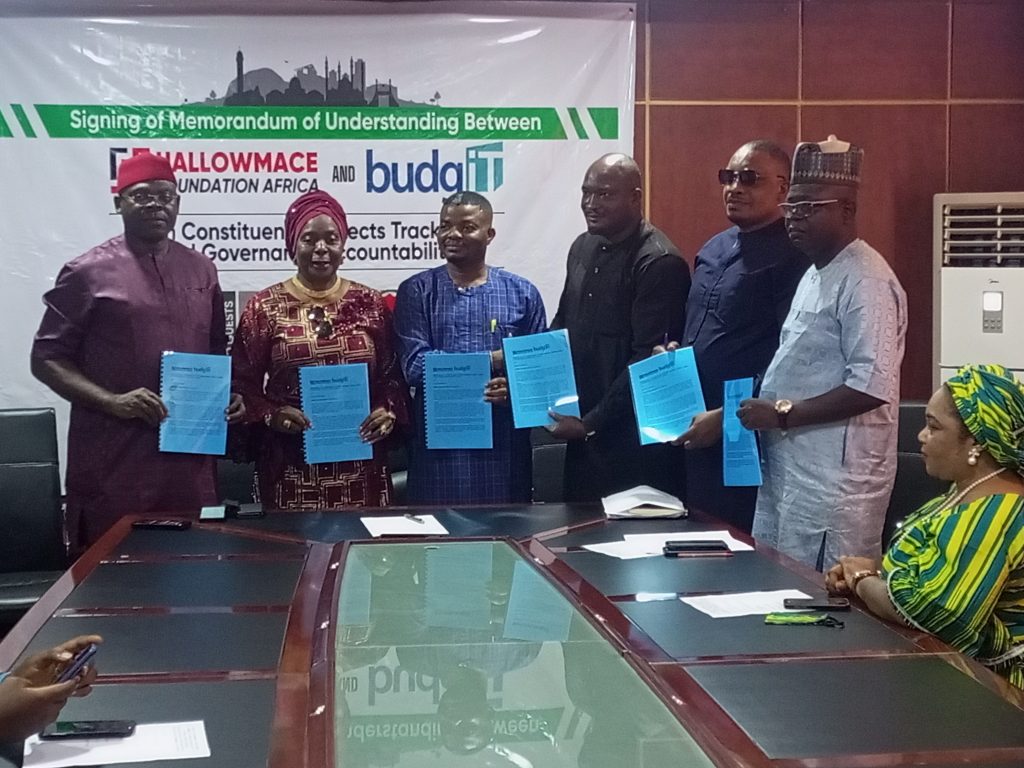
The Director General spoke at the Signing of a Memorandum of Understanding between Hallowmace Foundation Africa and Budgit on constituency projects tracking and Governance Accountability
Represented by his Special Assistant, Mr David Akoji, the director general disclosed that NOA has been working with the Independent Corrupt Practices and Other Related Offences Commission (ICPC) in tracking Constituency projects across the country.

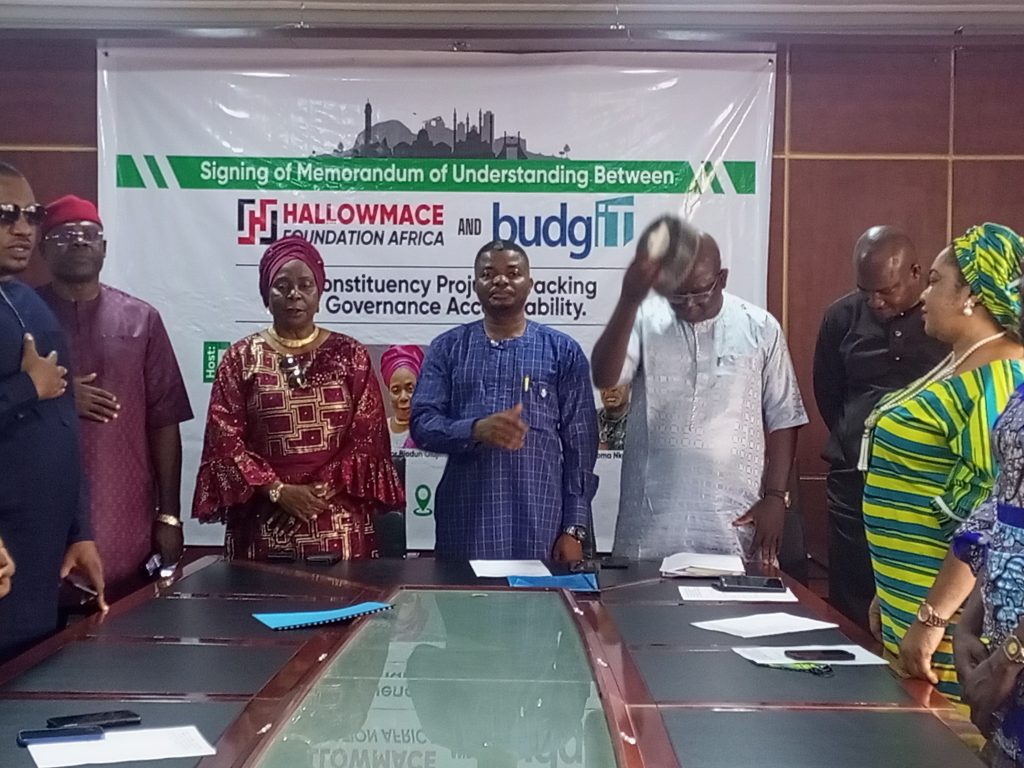
He said the mandate of the National Orientation Agency which includes getting citizens to know and enlightened about government activities was broad enough, hence, the NOA was open to any willing partner that has the same bias with the agency.
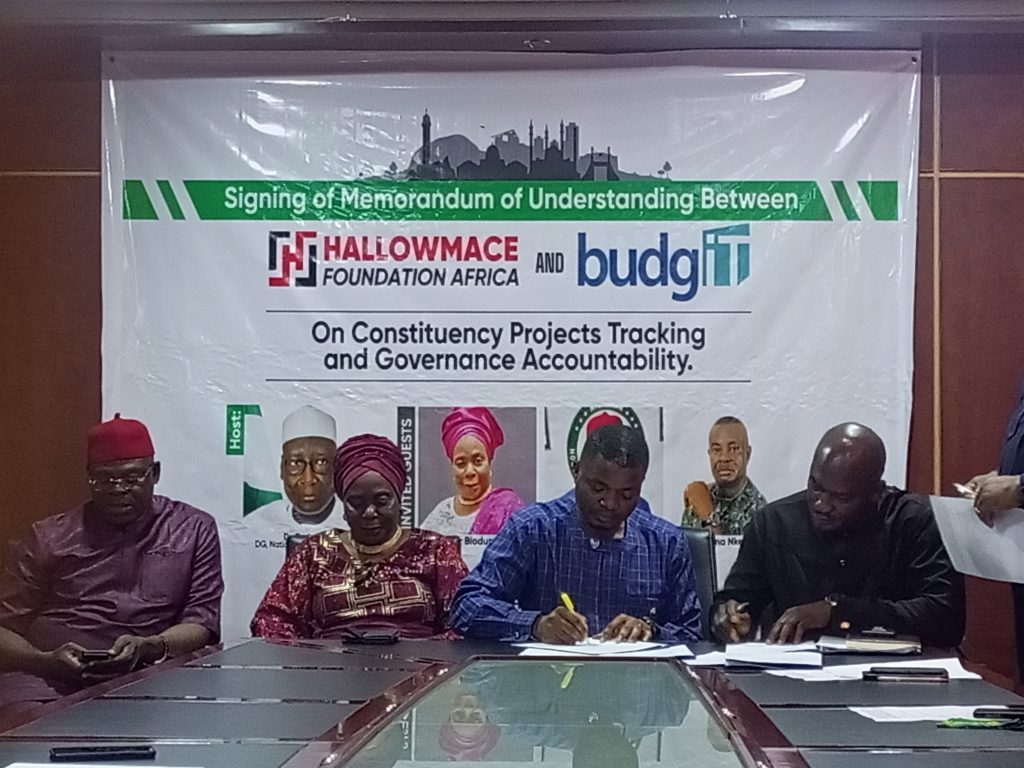
He said: “The legislature is the least understood in all arms of government and as NOA, we owe responsibility to get citizens to understand what each arm of government is doing and how they are doing it and we have a liaison office at the National Assembly to track what is happening there.
“I have worked closely with the Hallowmace team, they are passionate about what they are doing. If you would understand why I and the Director General are passionate about it, then you will have to understand the mandate of the National Orientation Agency (NOA),
“The National Orientation Agency has a mandate to sensitize the public on government policies, programmes and activities which on this context refer to the three arms of government; the executive, the legislature and the judiciary.
“It also refer to the three levels of government, the Federal, the State and the Local Government. It is for this reason that the NOA is structured along that line in the 774 Local In the 36 States of the Federation and the Federal Capital Territory (FCT) and the headquarters here where we are seated at the moment.
“Our mandate is very broad and we are conscious of that fact and as a single agency of government, there is no way we can satisfactorily fulfill the mandate and we are always looking for value adding partnerships. Partnership that think the way we think; partnership that bring expertise to advance the work that we do at the National Orientation Agency. So it is not difficult for us to work together with Hallowmace.
“When the discussion started with Hallowmace and BudgiT that led to the partnership that we are about to sign the memorandum today, I was part of it and I discovered that it will indeed add value.
He further explained that the NOA in the course of tracking Constituency projects of lawmakers usually got the stakeholders in the community level involved to enable them take ownership of the projects.
“With regards to Constituency project tracking, the NOA had worked closely with the Independent Corrupt Practices and Other Related Offences Commission (ICPC) especially on the issue of Constituency project tracking.
“This will leverage on our national footprint in all the Local Government and States of the Federation. This will leverage on our area of expertise in getting the people to be aware of Constituency project executed and we work closely with key stakeholders in the community and the whole idea is for community members to take ownership of Constituency projects and to appreciate what their representatives are doing through Constituency projects to protect the Constituency projects and to ensure value is delivered through those Constituency projects.
“So we have worked ICPC to develop jingles, visit the communities to talk to stakeholders.
“At the last National Legislative Conference, we got the Chairman of ICPC to present a keynote address which he honoured the invitation along other key Stakeholders.
“The foundation upon which we are doing all of these is properly strengthened and that it is not seen as Government working alone; and that there is a partnership; and that there is mutual understanding with a Non-governmental organisation and the legislature itself working towards the same goal.
We are excited than this is happening today. We know the background of BudgiT in the area of what we are doing today. Our involvement through Hallowmace in what BudgiT is doing will bring about mutual respect and understanding in all parties involved.
Responding, the founder of Hallowmace Foundation, Mr Anderson Osiebe thanked the Management of NOA for their understanding in what partnership was all about.
He lauded the virtues of Senator Biodun Olujimi and Hon. Ossai Ossai who were both present to witness the signing of partnership agreement.
He said there was need for the NOA and BudgiT to have accurate data of activities of parliamentarians, particularly their Constituency projects which the foundation would offer.
“Hallowmace started as Communication first as magazine and we felt, writing wasn’t enough, there was need to go into broadcasting by bringing lawmakers into the studio to tell the members of the public their own stories by themselves.
“After that we felt, it isn’t good enough for writing and broadcasting that there’s a need to have a forum even if it is once in a year to bring the parliamentarians and members of the public together to engage each other in form of question and answer which we are doing with the National Orientation Agency.
“Again, we saw the need to up our game to have a foundation and whatever is this foundation all about? “!It about going into parliamentary advocacy, budget and Constituency project tracking and having looked around, our members of the board said the best people to go into partnership with is the National Orientation Agency.
“That they will have accurate record of what to work with and also the BudgiT and we are quite happy that when we invited them to the last Legislative Conference they came.”

